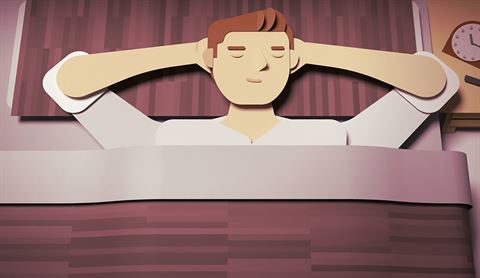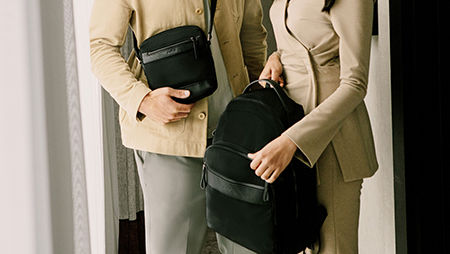EXPERT • March 2022
Are these the six best ways to beat jet lag?
Just as a hangover so often follows a great night out, travel can lead to some not so magnificent jet lag – a temporary sleep problem that can affect long-haul fliers. And, as with hangovers, everyone seems to have their own ‘cure’ – but which are the real deal? Frequent flier Jonjo Maudsley reports...
Jet lag occurs when your body crosses multiple time zones faster than your circadian rhythm (aka, your ‘body clock’) can keep up. The result is that, after arriving at your destination or back home, your sleep schedule needs a moment to readjust.
Over the years, the symptoms of disturbed sleep and daytime fatigue have been subject to much speculation and mythologising, with lots of ideas about so-called ‘cures’. Here, we’re investigating six of the most popular, which seem to be more effective than others. We can’t guarantee they’ll work but, the next time you come down with jet lag, why not give them a try.
Forcing yourself to stay awake
This is the big one, and probably the most sure-fire way to mitigate the effects of the dreaded lag. See, your sleep cycle is more flexible than you might think, meaning if you ‘miss’ a night’s sleep, you’ll build up a ‘sleep debt’ that can be paid off simply by adding more hours the following night. So, once you’re home – and, depending on your flight time, even during the flight itself – force yourself to stay awake until the next acceptable bedtime, and pay off your sleep debt then.

Melatonin supplements: yes or no?
Melatonin is the hormone your body produces to regulate its sleep cycle. When you’re jet lagged, your body will produce the hormone at odd times of day, which is why you might feel tired during the day and wide awake at night. It’s important to say that melatonin is a prescription-only drug in the UK, meaning we cannot recommend taking it without first seeking the advice of your GP. That said, multiple studies have found melatonin supplements (see also: cherries, which are said to boost melatonin levels naturally) to be highly effective at reducing the effects of jet lag, since they act as a signifier of sleep to the body, so this might be worth considering.
To drink or not to drink, that is the question
Some people swear that dipping into the drinks trolley on the plane is the ultimate way to ward off jet lag, the premise being that you’ll feel sleepy post-booze and tired enough to drift off for long enough to wake up in your destination feeling fresh and ready to go. The disappointing truth, however, is that not only will alcohol affect the quality of any sleep you get, but it also won’t help prevent jet lag. Instead, you run the risk of being jet lagged and hungover. Not ideal.
Caffeine: how much is too much?
In one study, researchers found a dose of caffeine could delay melatonin production by around 40 minutes. When you’re jet lagged, your body may start to produce melatonin when you might not want it, so a strategic dose of caffeine could minimise the effects. That doesn’t mean you should chug a coffee every 40 minutes but, if you feel your sleep hormones starting to kick in, a quick shot of espresso (you’ll find Union Coffee on board) could help you power through.

Sunlight: a traveller’s best friend
Since our circadian rhythms respond directly to sunlight, studies have shown that getting out in the sunshine is one of the best (and easiest) ways to help regulate our body clocks. Try to wake up as close to sunrise as possible and expose yourself to the emerging sunlight, and make an active effort to shut out the light, come sunset, in order to gradually ease your body back into its usual cycle. In this regard, a lightbox or sun lamp and black-out blinds are the jet lag home accessories.
Trying the ‘jet lag diet’
American scientist Dr Charles Ehret has been researching jet lag for decades. His 1983 book, Overcoming Jet Lag, recommends a four-day eating pattern, incorporating high-protein, high-carb, low-calorie meals, timed around periods of feasting and fasting, plus light exercises to keep the body stimulated until it’s time to sleep. It’s a complex strategy (which is why we recommend you read the book), but since one study found that travellers who follow this diet are seven times less likely to experience jet lag when travelling west and 16 times less likely when travelling east, there must be something to it.
The bottom line: whatever works for you
Jet lag continues to fascinate researchers, but it seems we are a long way away from ever finding a definitive ‘cure’. In the meantime, we can take solace in knowing that extreme cases of jet lag last no longer than a couple of weeks, and that the symptoms – while annoying – are usually not serious.
So, if you’ve found a jet lag cure that works for you, that’s great. But if not, don’t worry too much – you’ll soon get over your symptoms. This is, after all, the small price we pay for the convenience of being able to live that long-haul lifestyle.
This article has been tagged Wellbeing, Travel Tips
More from previous issues

The Club’s choice: best recycled baggage
Our favourite sustainable brands making luggage that shows love for you and the planet

Going for Gold: Michael Bonsor
The managing director of Rosewood London talks luxury travel

Could you make it as cabin crew?
Do you have what it takes to fly and to serve at 35,000 feet?

An inside look at our Heathrow T5 lounges
British Airways Lounge Manager Adrian Cole takes us on a tour of the best of T5’s rest stops
